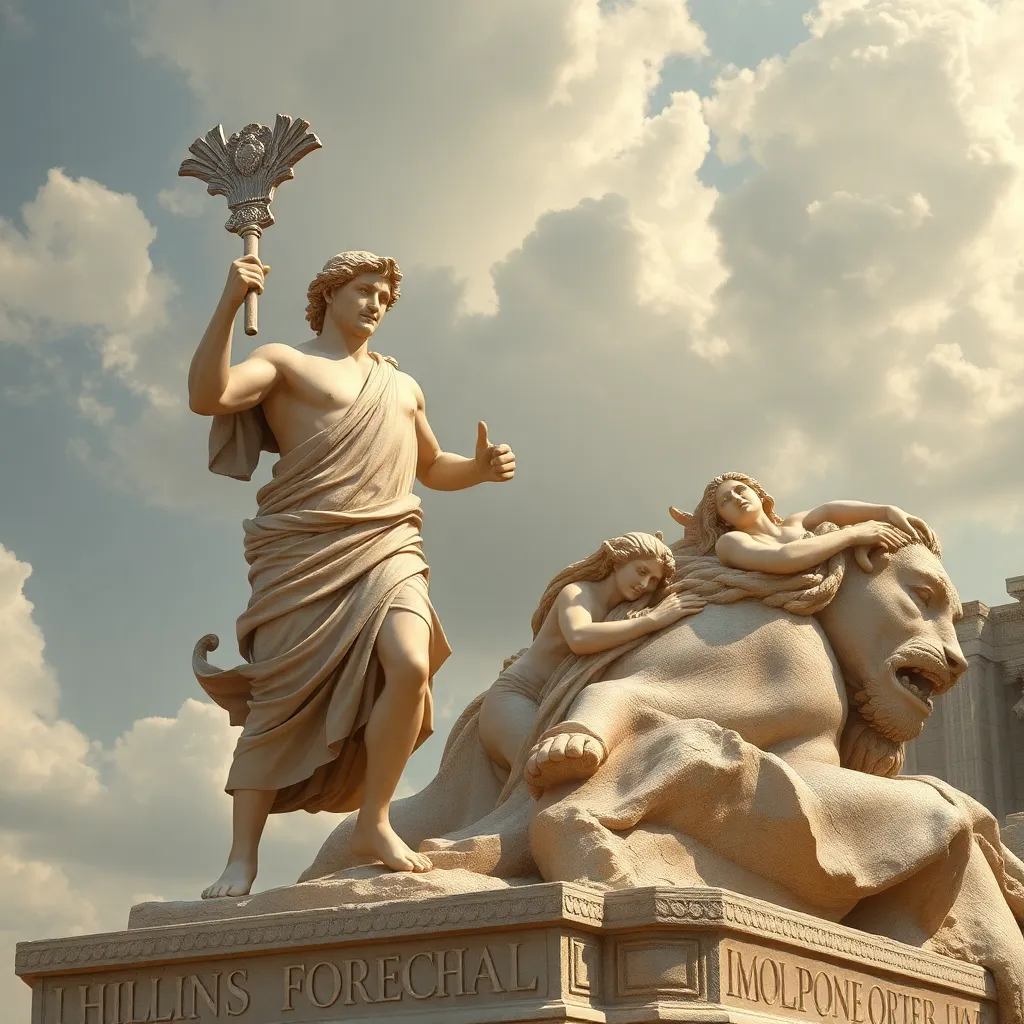The Role of Apollo in the Myths of Oedipus: A Tragic Connection
I. Introduction
The myths of Oedipus hold a prominent place in the canon of Greek tragedy, embodying themes of fate, identity, and the human condition. Oedipus, the tragic hero whose life spirals into despair, is not just a victim of his own choices but also of divine prophecy and cosmic order. Central to this tragic narrative is Apollo, the god of prophecy and light, who plays a pivotal role in shaping Oedipus’s fate. This article aims to explore the profound influence of Apollo on the story of Oedipus, examining how the god’s prophecies and divine will intertwine with the hero’s tragic journey.
II. Apollo: The God of Prophecy and Light
Apollo, one of the Olympian deities, is revered as the god of prophecy, music, healing, and the sun. His multifaceted nature encompasses various domains, making him one of the most important figures in Greek mythology. Key attributes of Apollo include:
- God of prophecy and oracles
- Patron of the arts and music
- Symbol of light and truth
- Healer and protector of the sick
In Greek mythology, prophecy serves as a crucial thematic element, often guiding characters toward their destinies. Apollo’s role as the oracle of Delphi, the most significant oracle in the ancient world, underscores his importance in the lives of mortals. It is here that seekers of truth would come to receive divine revelations, often leading to profound changes in their lives.
III. The Prophecies and Their Impact on Oedipus
The tale of Oedipus begins with a harrowing prophecy: he is destined to kill his father and marry his mother. This prophecy, delivered by the Oracle of Delphi, sets the stage for Oedipus’s tragic fate. Upon learning of this dreadful fate, Oedipus responds with disbelief and determination to escape it. He embarks on a quest to avoid the very events that the prophecy foretells, which leads to a paradoxical situation where his efforts to assert control over his destiny ultimately fulfill the prophecy.
This narrative encapsulates the enduring theme of fate versus free will. Oedipus’s struggle against the prophesied outcome raises questions about the extent of human agency. Can one escape their destiny, or is it preordained? Oedipus’s attempts to outrun his fate only serve to highlight the futility of his struggle, reinforcing the idea that the gods, particularly Apollo, wield immense power over mortal lives.
IV. Apollo’s Influence on Key Characters
Apollo’s influence extends beyond Oedipus himself, affecting the lives of several key characters within the myth. For instance:
- Creon: As Oedipus’s brother-in-law and the ruler of Thebes, Creon seeks guidance from Apollo to save the city from plague. His actions show how the god’s advice shapes leadership and decision-making in times of crisis.
- Jocasta: Oedipus’s wife and mother, Jocasta initially dismisses the prophecies as mere fabrications. Her relationship with Apollo is complex, as she grapples with the fear of fate while seeking solace in disbelief.
These interactions illustrate how Apollo’s messages reverberate through Oedipus’s family dynamics, creating tension and tragedy. The reliance on divine guidance complicates personal relationships, leading to misunderstandings and ultimately catastrophic consequences.
V. The Concept of Divine Retribution
Apollo embodies divine justice, often acting as a punisher of hubris and moral transgressions. In the case of Oedipus, the repercussions of his actions are seen as manifestations of Apollo’s will. The consequences of Oedipus’s attempts to defy fate lead to tragic outcomes:
- Oedipus’s relentless pursuit of truth results in the revelation of his own horrific actions.
- The realization of his identity and the fulfillment of the prophecy lead to his self-inflicted punishment.
This interplay between human agency and divine intervention raises critical questions about morality and the nature of justice in Greek mythology. Apollo’s role as both protector and punisher emphasizes the delicate balance between fate and free will.
VI. The Role of the Oracle of Delphi
The Oracle of Delphi holds historical significance in ancient Greek society as a site of divine communication. Individuals and city-states would consult the oracle for guidance on various matters, from personal dilemmas to national crises. In the context of Oedipus’s myth:
- The oracle’s prophecies set the course for Oedipus’s life, framing the narrative of his tragic downfall.
- Specific prophecies delivered to Oedipus reveal the complexity of interpretation, as characters grapple with the implications of divine messages.
The oracle’s revelations not only shape Oedipus’s fate but also reflect the broader cultural belief in the power of prophecy and the necessity of heeding divine warnings.
VII. Apollo’s Dual Nature: Protector and Punisher
Apollo’s character embodies duality, serving both as a benevolent guide and a relentless enforcer of fate. This duality is evident in Oedipus’s story, where:
- Apollo provides the prophecy that ultimately defines Oedipus’s existence.
- His role as a punisher underscores the harsh realities of divine justice, as Oedipus faces dire consequences for his actions.
The contradiction of Apollo’s benevolence and harshness invites broader reflections on the nature of the gods in Greek mythology. They are not merely protectors but also agents of fate, often indifferent to the suffering of mortals.
VIII. Conclusion
In summary, Apollo stands as a central figure in the myths of Oedipus, profoundly influencing the trajectory of the tragic hero’s life. His prophecies and the divine will guide the narrative, intertwining fate and free will in a complex dance that ultimately leads to Oedipus’s downfall. The tragic connection between Apollo and Oedipus serves as a poignant reminder of the interplay between divine influence and human action, echoing throughout literature and culture.
These myths endure, resonating with audiences as they explore the themes of destiny, identity, and the inexorable forces that shape human lives. The legacy of Apollo and Oedipus continues to inspire reflection on the human condition and the mysteries of fate.




